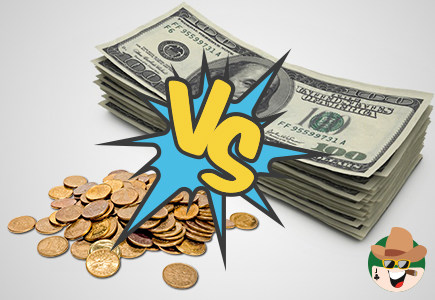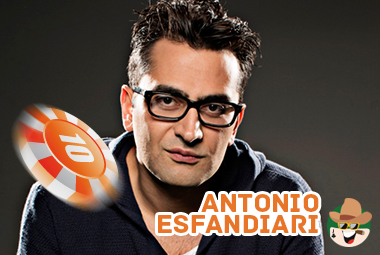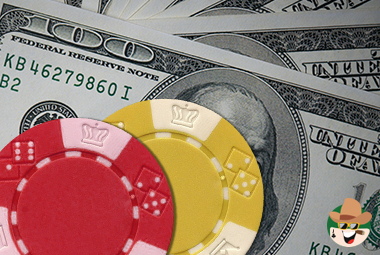

I do enjoy getting letters from my readers. This one arrived this week.
'Dear Geno,' it reads. 'I have been watching those high stakes poker games on late night television. I am a small-time poker player but, wow, I have to admit the way those people play absolutely thrills me. So much money is involved. I find myself thinking dumb thoughts like if I had the money, I could beat them! Please tell me if I am crazy or what? Guy D., Las Cruces, N.M."
No, Guy, you're not crazy.
Like you, I enjoy tuning in to the high stakes poker channel. I have watched professional players like Phil Ivey, Johnny Chan, Doyle Brunson and Antonio Esfandiari invest up to $1 million to play for cash. It's exciting poker. There's no question about that.
These players certainly have two things in mind. They don't want to make fools of themselves at the table, and they play their hands pretty straight from the shoulder. While there are a few bluffs, there are far less than you will see in a poker tournament. That's because cash rather than chips are involved.
High stakes players will sometimes make a big bluff on the river to represent a high hand. But more often they will wait until they have the nuts. And even then they don't bet that much. They don't want to lose the player with too big a wager.
If I were playing against them and had an over pair, when they made a big bet on the river I would call.
You need to be willing to play basic poker in high stakes competition. If you are intimidated by too large a bet, you have no business being in the game.
Let's say the game is down to five handed. That's only 10 cards out of the deck. And let's say you have pocket deuces. Someone raises in front of you. What do you do?
You re-raise, of course. Just calling the raise is a bad play. Your chances of improving the hand to trips are about nine to one. And when the raiser comes out with his continuation bet, which he certainly will after the flop, what are you going to do with your small pair?

Professional poker players have one common trait: almost all of them are egotistical. They know a television audience is watching and they want to seem more clever than their opponents.
Cards can be merciless. You pray for certain cards and receive others. You cannot change their faces. You have to play what the dealer gives you.
Once a player gets a big stack of chips and has a lead on the other players, it will do you little good to try to run over him with a bluff. It just probably won't work. the winner will probably call you out of ego alone if he has a reasonable hand. If he loses, no big deal. He smiles and accepts his loss, knowing he is still ahead.
A player who has been losing on the other hand probably will fold a borderline hand. You need to think of high limit players as you would lower limit players. They think and play pretty much the same. Only the denominations are different.
When you increase your limits in a cash game, just remember to play solid poker. Don't call with poor cards unless you are in the blind. Then if you have any reasonable hand, you can call or even make a re-raise.
I would actually rather play a high stakes cash game with a professional player than a tournament. In a tournament, their losses are limited to their initial buy-in, but when cash is at stake, the sky is the limit. Remember that, act accordingly, and watch your bankroll increase.
Author: Geno Lawrenzi Jr.
(Geno Lawrenzi Jr. is an international journalist, magazine author and ghostwriter and poker player who lives in Phoenx, AZ. He has published 2,000 articles in 50 magazines and 125 newspapers. If you want to share a gambling story or book idea with him, send an email to glawrenzi@gmail.com ).





